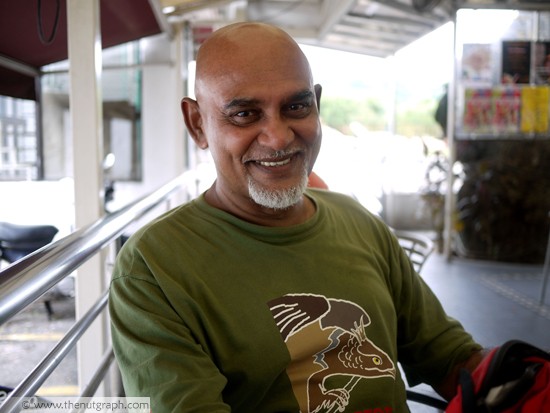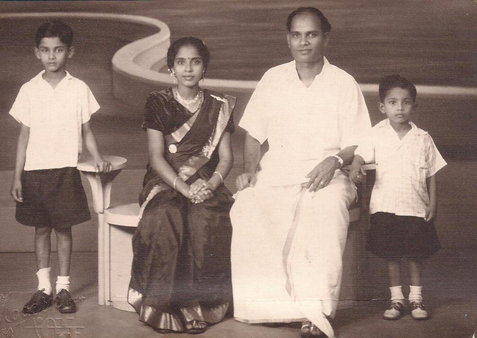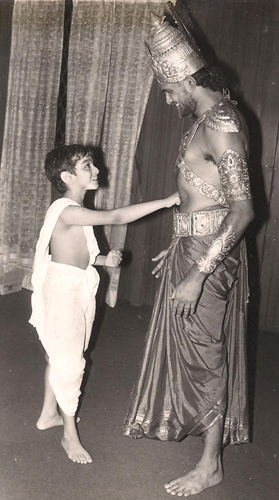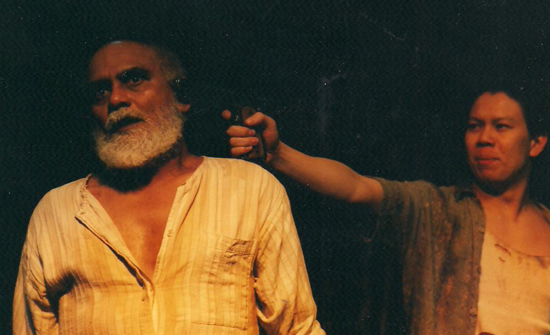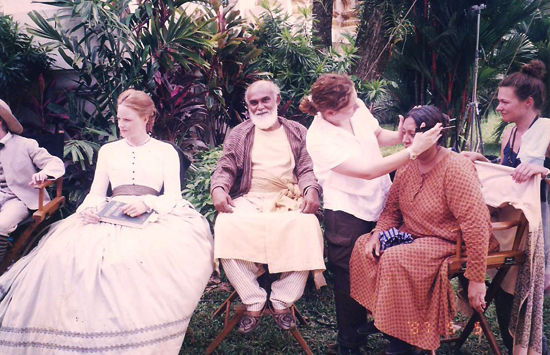By Ramananda Sengupta- Al Jazeera
 |
| India has traditionally endorsed and espoused the Palestinian cause [GALLO/GETTY] |
"We do have a defence relationship with India, which is no secret. On the other hand, what is a secret is what is the defence relationship. And with all due respect, the secret part of it will remain secret." - Mark Sofer, Israel's ambassador to India, in a recent interview given to OutlookIndia.com.
India and Israel were born within months of each other. While the former became an independent state on August 15, 1947, the latter was born on May 14, 1948, following the decision of the United Nations to partition British Mandate Palestine.
India, which had opposed this partition, remained officially cold to the Jewish state. In May 1949, it voted (in vain) against the admission of Israel into the UN. In early 1950, after recognising the state of Israel, a visibly reluctant New Delhi allowed it to set up an "immigration office" in the port city of Mumbai. This eventually morphed into a "trade office" and then into a consulate.
But New Delhi dithered over according full diplomatic recognition to Israel until early 1992, when the two nations formally opened their respective embassies in Tel Aviv and New Delhi.
Pro-Arab leanings
Indian foreign policy in the early days after its independence was heavily pro-Arab, partly due to the fact that India has a huge Muslim population which empathised with the Arab world and viewed Israel with suspicion and distrust. But that was not the only reason.
Almost a decade before independence, the father of the Indian freedom movement, Mohandas Karamchand Gandhi, had clearly articulated his position on the issue. In an editorial in the
Harijan, a widely circulated Indian weekly, on November 11, 1938, Gandhi declared: "My sympathies are with the Jews ... but my sympathy does not blind me to the requirements of justice. The cry for the national home for the Jews does not make much appeal to me ... Why should they not, like other peoples of the earth, make that country their home where they are born and where they earn their livelihood? Surely it would be a crime against humanity to reduce the proud Arabs so that Palestine can be restored to the Jews partly or wholly as their national home."
India's first prime minister, Jawaharlal Nehru, agreed. Nehru was among the founder members of the Non-Aligned Movement (NAM), along with Presidents Josip Broz Tito of Yugoslavia and Gamal Abdul Nasser of Egypt. This relationship with Nasser and other Arab members of the movement made it difficult for Nehru to align openly with Israel. Besides, while the NAM was an attempt to stay non-aligned during the Cold War, Israel was seen as too closely aligned with the US.
Another reason for India's coldness towards Israel was that, after independence, a large number of Indian workers migrated to the Gulf. The money that they sent back to India formed a sizeable chunk of India's foreign exchange inflow.
This foreign policy position laid out by Nehru and Gandhi was challenged, however, by opposition parties in India from both ends of the political spectrum; they consistently argued for better relations with Israel.
Establishing relations
Although formal relations between India and Israel were established only in 1992 during the tenure of Indian Prime Minister Narasimha Rao, informal relations in the areas of defence and intelligence had commenced long before that. It is interesting that Rao, who was prime minister from June 1991 to May 1996, also aggressively wooed Iran, a nation which did not recognise Israel's statehood, preferring to describe it, instead, as "the Zionist regime".
India's historically hostile relations with Pakistan are often cited as a key reason for the India-Israel defence and intelligence link. But military aid from Israel (mostly in the form of artillery shells) was received by India even during the 1962 India-China border war, which ended only when the Chinese unilaterally withdrew to their pre-attack positions.
Before Rao officially recognised Israel in 1992, Indian and Israeli intelligence officials often met surreptitiously in third countries, particularly after the India-Pakistan war of 1971.
During that war, which led to the birth of Bangladesh from Pakistan's eastern wing, Israel again helped India with mortars and ammunition. One of the Indian heroes of that war was the then eastern command chief, General JFR Jacob - a Jew.
Then, during the Kargil war of May-July 1999, when India attempted to repel Pakistani intruders who had taken up positions on the higher reaches of the Kargil mountains, Israel quickly sent Heron and Searcher unmanned aerial vehicles, or UAVs, to locate and identify the Pakistani-held positions. It also supplied ammunition for the Bofors field guns and night vision equipment, both of which played key roles in the conflict.
Endorsing Palestinian cause
 |
| Yasser Arafat, the late leader of the PLO, made several visits to India [GALLO/GETTY] |
Paradoxically, India also, simultaneously, endorsed and espoused the Palestinian cause. On its website, the Indian ministry of external affairs says with regard to its relations with the Palestinian people: "India's empathy with the Palestinian cause and its friendship with the people of Palestine have become an integral part of its time-tested foreign policy. In 1947, India voted against the partition of Palestine at the United Nations General Assembly. India was the first non-Arab state to recognise the PLO [Palestine Liberation Organisation] as sole and legitimate representative of the Palestinian people in 1974. India was one of the first countries to recognise the state of Palestine in 1988. In 1996, India opened its Representative Office to the Palestine Authority in Gaza. The office was moved to Ramallah in 2003."
The founder and chief of the PLO, Yasser Arafat, had made numerous visits to India, where he was always received warmly. In April 1984, Indian Prime Minister Indira Gandhi visited Arafat's headquarters in Tunis after a state visit to Libya. When Gandhi was assassinated a few months later by her bodyguards in New Delhi, a shocked Arafat wept in public.
One might wonder how New Delhi reconciled these seemingly irreconcilable positions. It did so by getting the Palestinian Authority on board. Zikrur Rahman, the Indian representative to the Palestinian Authority in Ramallah, told the London-based
Al-Haqeq newspaper on 12 May 2007: "When we recognised Israel and normalised relations with her, we did that after taking the approval of the Palestinian leadership; we said, after you agree we'll recognise [Israel] .... The Palestinian leadership told us: 'There are signed accords between us [and Israel] and we are now talking to the Israelis; your establishing relations with Israel helps us.'"
India has also been consistently contributing huge sums of money as grants for budget and development aid to the Palestinian Authority. A recent example took place during the visit of Palestinian President Mahmoud Abbas to India in February 2010.
On that occasion, Prime Minister Manmohan Singh announced a grant of $10mn as budget support to the Palestinian National Authority. This followed several earlier grants of similar amounts, as well as assistance with the development of schools, stadiums, roads and hospitals. India also trains Palestinian diplomats.
An 'unwritten axis'
Over the years, however, the India-Israel relationship has burgeoned into a situation where Israel is poised to become the largest defence supplier to India, a position currently held by Russia. Israel also trains Indian special forces, which are then deployed in the troubled region of Kashmir and in India's north-east areas.
Apart from strategic and military interactions between the two nations, Israeli sensors and satellites are used extensively to monitor the Kashmir border to detect infiltration by insurgents from Kashmir and Pakistan.
The events of 11 September 2001 and the subsequent "war on terror" served to further strengthen this relationship. So did the 26 November 2009 Pakistani terrorist strike in Mumbai. The three-day ordeal left some 200 people dead and more than 300 wounded. Six of the dead were Jews at the Chabad House, a Jewish centre near Nariman point, which was specifically targetted.
But it is not just defence and security that India and Israel collaborate on, though those sectors form a huge, though mostly secret, chunk of bilateral relations. India is also increasingly using Israel's sophisticated drip irrigation technology to boost agricultural production. Non-military bilateral trade stood at $4.2bn in 2009, up from $200mn in 2001. Information technology, telecommunications, energy, chemicals, agriculture, and even real estate and space exploration are areas where there are significant business exchanges.
India recently put an Israeli satellite into orbit. The two sides already have several joint working groups, committees and other bilateral institutional mechanisms. Key among these are foreign office consultations, counter-terrorism, defence cooperation, trade and economic cooperation, agriculture, science and technology, and a dialogue between national security advisers.
While officially tight-lipped over nuclear cooperation, the two states clearly share deep concerns about the possibility of nuclear proliferation by Pakistan, as well as Iran's nuclear ambitions.
In September 2003, during the visit to India by Israeli Prime Minister Ariel Sharon (the first such visit by an Israeli prime minister), his deputy (now late) Yosef Lapid told journalists that an "unwritten, abstract" axis had been created between Israel, India and the US. While there was no "formal triangular agreement ... there is mutual interest of the three countries in making the world a more secure place for all of us. There is American support for development of this unwritten axis," Lapid told reporters in New Delhi. Therefore, "in the abstract sense, we are creating such an axis".
In a talk delivered at the Indian Council for World Affairs the same day, he warned that both nations face threats from terrorism and "fanatic" Muslims, and said the "moment terrorists laid hands on nuclear weapons the face of the world will change".
Noting that Israel had accepted the possible existence of a Palestinian state, Lapid said this could become a reality the moment "Arabs stop terrorising us". At the same time, the strengthening of Indo-Israeli ties should not be a "disturbing factor" for Arab countries, and "the Indian government has a right to establish relations with any country," he added.
Arabs 'losing India'
 |
| The Mumbai attacks brought India and Israel closer together [GALLO/GETTY] |
"What made India change its mind and throw itself in the arms of a country that occupies Arab and Palestinian land, to the point where it has played host to Ariel Sharon?" asked Mustafa El-Feki, the chairman of the foreign affairs committee in the Egyptian parliament, and a former Egyptian ambassador to India, in an article in
Al-Ahram Weekly.
"India and Israel have their own separate political agendas. India wishes to have access to US and Israeli technology, particularly in the development of weapons. Israel, for its part, wishes to have the political backing of a powerful nation," he wrote.
El-Feki pointed to several reasons for this cosy relationship between India and Israel.
First, we have made the error of viewing the Indian-Pakistani conflict from an Islamic perspective. We have tried to "Islamise" the ongoing conflict in South Asia, posing as protectors of Islam and custodians of the international community. And we have overlooked the regional role of India, with Arab leaders showing up in New Delhi much less frequently than before.
Second, he wrote, was the rejection of India's application for membership of the OIC. "A country with 120 million Muslim citizens applied for membership and what happened? Islamic countries, in typical naiveté, rejected the Indian application, imagining this would please Pakistan and teach India a lesson," he said.
Third, according to El-Feki, after the collapse of the Soviet Union and the end of the Cold War, India moved closer to the US for both political and economic reasons. He argued: "I wouldn't be surprised to see India assume the role of a policeman in the Indian Ocean and the outskirts of the Gulf, with US blessing and with the aim of encircling so-called Islamic violence. This would be in harmony with Israel's agenda, and it may pave the way to a scheme of joint control over the Greater Middle East."
Making a strong case for an even-handed Arab approach towards India and Pakistan, the former ambassador to India recalled that during his time in India, the Palestinian ambassador to New Delhi enjoyed the privilege of meeting the Indian prime minister at any time he wished to do so. But as the Islamic phenomenon spread and some Arab policies acquired a religious tint, India grew visibly suspicious of the Arab and Islamic worlds. To make things worse, Arab diplomacy in India was lackadaisical over the past two decades ... We have lost India so far for no good reason, I should say .... It is time we mend this error. It is time to bring Arab countries closer to both India and Pakistan, rather than take one side or keep our distance altogether. I believe the Arabs have only themselves to blame for India's change of heart on the Palestinian question."
'Enlightened self-interest'
Despite the rapidly increasing synergy with Israel, however, India continues to enjoy reasonably cordial relations with the Arab League and the Gulf Cooperation Council. India has been attending the annual Arab League summits as an observer since 2007, and the first Arab-India Cultural Week was held in New Delhi in 2008.
In a statement released on the eve of the 65th anniversary of the Arab League on March 27 this year, the League declared: "There is a need for collective and dedicated efforts for strengthening Indo-Arab ties with further building up of relations between India and the Arab world, including in the fields of Science and Technology, Education, Health, Telecommunication and Energy."
As far as the Gulf Cooperation Council (UAE, Bahrain, Saudi Arabia, Oman, Kuwait and Qatar) is concerned, while New Delhi enjoys reasonably cordial ties with the individual states (which supply almost 70 per cent of its oil and energy needs), attempts to forge a free trade agreement with the Council have been held up due to issues over whether oil should be part of the agreement.
India's current prime minister, Manmohan Singh, has often described the country's growing relationship with the US, as well as the recent endorsement of US/UN sanctions against its long-term ally, Iran, as acts of "enlightened self-interest". Many in his government use the same phrase to describe the relationship with Israel.
India - and Israel - have taken pains to spell out that this relationship is not at the expense of India's relations with the Arab states. Indian diplomats and politicians keep pointing to the fact that India has publicly condemned Operation Cast Lead, Israel's name for the blistering three-week long attack on the Gaza Strip in late 2008-early 2009.
India also joined in the international condemnation of the May 31, 2010 pre-dawn Israeli attack on the Turkish Ship
Mavi Marmara, which led the "Gaza Freedom flotilla" carrying humanitarian aid for the people of the blockaded Gaza Strip. Nine people were killed in the attack by Israeli commandos.
"India deplores the tragic loss of life and the reports of killings and injuries to the people on the boats carrying supplies for Gaza. There can be no justification for such indiscriminate use of force, which we condemn. We extend our sympathies to the families of the dead and wounded. It is our firm conviction that lasting peace and security in the region can be achieved only through peaceful dialogue and not through use of force," said a statement from the ministry of external affairs.
But while successive governments in New Delhi have been quietly trying to maintain and develop India's relationship with Israel without overly antagonising the Arab world, there are times when the stress shows. Take, for instance, the article written by recently-removed minister of state for external affairs, Shashi Tharoor, in January 2009. Tharoor was India's candidate for the UN secretary general's post in 2006. He quit after losing to Ban Ki-moon, and joined Indian politics. The syndicated column, distributed worldwide, was run by Israel's
Haaretz newspaper with the title: "India's Israel Envy". The article, which coincided with Israel's operation Cast Lead, caused an uproar, both domestically and internationally.
During his election campaign in March 2009, the opposition used the article to imply that Tharoor endorsed the Israeli military operation in Gaza. Earlier, several Arab diplomats in New Delhi also voiced their concern, asking whether Tharoor's article reflected the ruling Congress Party's position on Israel.
Tharoor was subsequently forced to write another article defending himself, and clarifying that he had not endorsed Israel's military campaign in Gaza, and pointing to what he regarded as his long and consistent pro-Palestinian stand during his stint at the United Nations.
India-US relations
Another critical factor in the changing Indo-Israeli relationship is the rapidly developing ties between India and US. Given the strong US-Israel relationship, New Delhi does not want to rock the boat by openly antagonising Israel. Besides, the Indian diaspora in the US, which is growing increasingly active politically, admits to looking at the American Jewish Council (AJC) and America Israel Political Action Committee (AIPAC) as role models. As one analyst put it, India and Israel move closer together each time the India-Pakistan conflict escalates.
Officially, New Delhi insists that this relationship does not signify a change in its position on Palestine, or its ties with the Arab world. Privately, however, Indian diplomats point to the fact that despite numerous Indian overtures, the Arab world consistently backed Pakistan's position on Kashmir, while Israel endorsed the Indian stand.
In 2003, after Ariel Sharon's visit to India, then Indian foreign minister Yashwant Sinha had tried to allay Arab fears by telling the Pakistani newspaper
The News:
"The fact that Sharon visited New Delhi in no way makes us complicit to what the Israeli are doing or saying. We have explained our position with regard to Palestinian cause in very clear terms as indeed we have done repeatedly to Israel."
Responding to a question on India's relations with the Arab world, particularly in the context of Israel's decision to expel PLO leader Yasser Arafat, Sinha said: "I don't think Palestinians are in any doubt about Indian policy. The problem arises only with those people inside India and outside India who are more Palestinian than the Palestinian themselves."
Recently, a senior Indian foreign ministry official (who requested anonymity) remarked when quizzed on the status of India-Arab relations: "We are very keen to maintain friendly relations with both the Arab world and Israel. But it would help us a lot if the Muslim world took a more nuanced stand on Pakistan and Kashmir."
Ramananda Sengupta is the chief editor of the Indian news website www.sify.com.
The views expressed in this article are the author's own and do not necessarily reflect Al Jazeera's editorial policy.
This article was first published by the Al Jazeera Centre for Studies.








 By B Nantha Kumar and G Vinod - Free Malaysia Today
By B Nantha Kumar and G Vinod - Free Malaysia Today



 menjawab 52 soalan berkaitan maklumat terbaru kes pembunuhan wanita Mongolia, menerusi dua peguamnya kepada Suruhanjaya Pencegahan Rasuah Malaysia (SPRM), petang ini.
menjawab 52 soalan berkaitan maklumat terbaru kes pembunuhan wanita Mongolia, menerusi dua peguamnya kepada Suruhanjaya Pencegahan Rasuah Malaysia (SPRM), petang ini.